Former broadcaster, Linda Coble, says all voices are meant to be heard.
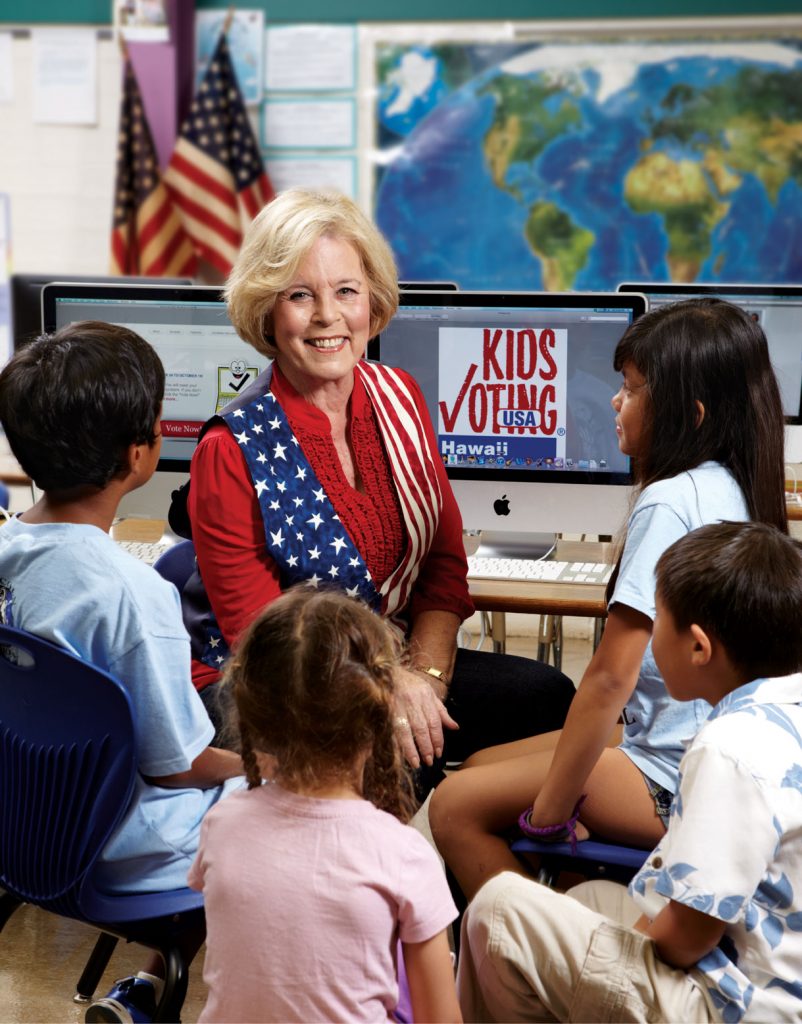
As a budding broadcaster in the 1960s, Linda Coble struggled to have her voice heard in the news business.
In those days, women were not on the air. Yet, Hawai‘i offered her something that the Mainland couldn’t — a foot in the door atLinda Coble as a newsroom secretary. She quickly moved from making coffee to reporting the news. In fact, she later became the first female TV news anchor in Hawai‘i.
She worked at ABC’s Channel 4 for a couple of years before being lured to KGMB by Bob Sevey, where she reported the news for 15 years.
By the mid-1980s, Coble was a well-established broadcast journalist and a household name in the Islands. She was invited to join the Rotary Club of Honolulu, which was newly opened to women due to a U.S. Supreme Court ruling in 1987. In 2000-2001, Coble became the statewide governor of Hawai‘i’s Rotary clubs, the first woman to hold the post.
Soon thereafter, she left TV news for morning radio on KSSK to work with Michael Perry and Larry Price. Radio allowed her to comment on the news, rather than simply report on it. This gave her the freedom to promote community organizations such as Kids Voting Hawai‘i, which is supported by Rotary Clubs statewide.
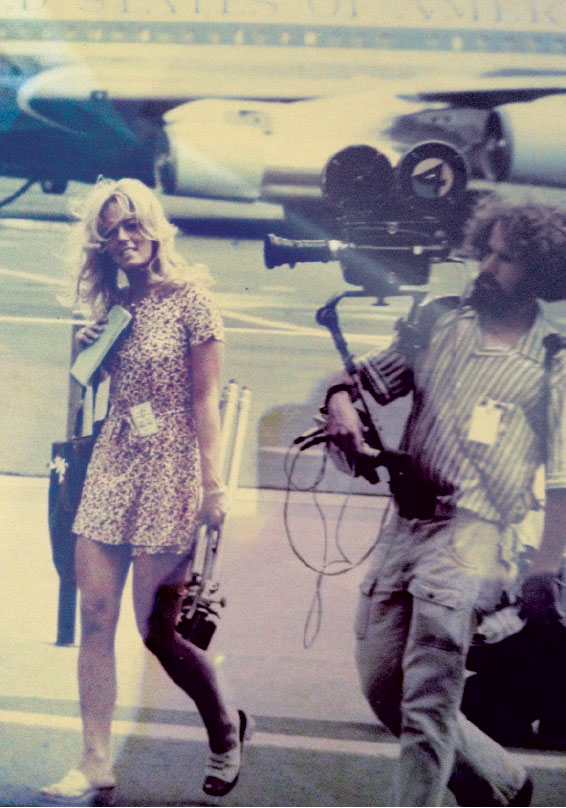 Kids Voting Hawai‘i is a non-profit, nonpartisan, grassroots organization. Its mission is two-fold: to prepare schoolchildren for a lifetime of voting, and to encourage adult voter participation.
Kids Voting Hawai‘i is a non-profit, nonpartisan, grassroots organization. Its mission is two-fold: to prepare schoolchildren for a lifetime of voting, and to encourage adult voter participation.
Actually, Hawai‘i’s seniors set a great example for young voters. According to AARP Hawai‘i, 90 percent of local seniors said they voted in 2010, and seniors cast 1 out of every 3 ballots in state. They are a big force in voting. Since many seniors have been around since statehood, they take voting seriously. They know what there is to gain … and what is at risk.
Coble, 65, has been a glass-ceiling breaker and community volunteer since arriving in Hawai‘i in 1969. This month, we talk with Coble about how she found her voice on the air and in the community.
GM: We know that you moved out to the Islands in your 20s, but where did you grow up? What is your background?
LC: I was 2 years old when my parents moved from urban New York to earthy Portland, Oregon. I’ve been told that I was terrified of grass … I was truly a city girl. I guess my dad missed the concrete jungle, because he walked out when I was 5 and my sister was a baby. I still remember holding the door for him. Mom held us together, working as a mural artist/interior designer with a woman, who eventually became our step-grandmother. I’m convinced mom’s example of determination made an enormous difference in the success of her girls.
Later came my brother, and we moved to interracial Northeast Portland, where neighborhoods and schools were mixed. Our African-American neighbor (the principal of my grade school) built a fence when we moved in next door. I learned to get along with people of all races at an early age … an experience that was invaluable, especially once I was living in Hawai‘i and working in the media.
GM: So, what brought you to Hawai‘i and kept you here?
LC: When it was time to declare a major at the University of Oregon, I had to face the fact that I wasn’t a good speller, so I finally surrendered my journalistic fantasies and turned to broadcast journalism.
I received an Oregon Association of Broadcasters scholarship that enabled me to continue studies and graduate with a degree that I proudly flashed during interviews at TV stations throughout Oregon.
During one interview, a manager at the CBS affiliate in Portland told me, “Come back when you have had more experience, and a sex change operation.” I was devastated. My grandmother sympathetically sent me to Hawai‘i for a week to visit a girlfriend in Pearl City.
While on Oahu, I tracked down Jim Manke, the president of the Hawai‘i Association of Broadcasters. Manke was also the news director at the ABC station. He gave me a job as the newsroom secretary in 1969 (on the same day we landed a man on the moon!)
Hawai‘i became my new home. I was so happy when my sister, Cameron Maheras, soon followed and became a force in the fashion world here.
Eventually, I was reporting stories and became the first female TV news anchor in Hawai‘i. Bob Sevey noticed and hired me away to KGMB a couple years later.
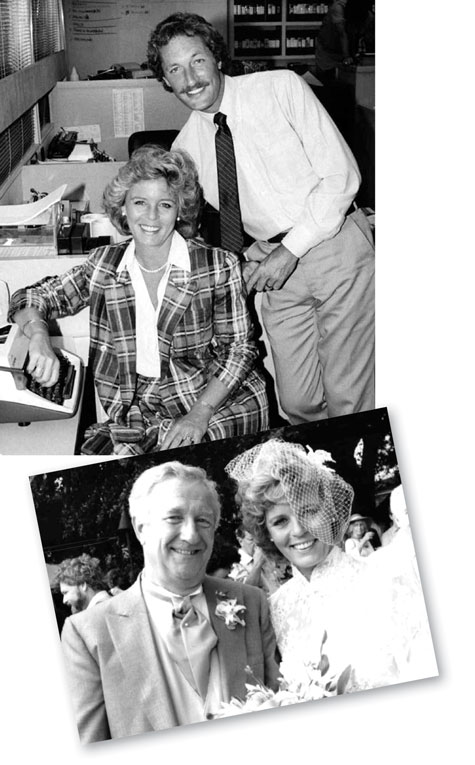 GM: Did you have a mentor in broadcasting?
GM: Did you have a mentor in broadcasting?
LC: I would say that every reporter and anchor at KGMB considered Bob Sevey as a mentor. What an ethical, accurate, fair newsman! And he genuinely cared about his team. I was at KGMB for 10 years, until my stepfather died in 1981. During that time, the CBS affiliate in Portland, KOIN TV, was recruiting for its first female anchor. Sevey generously said he would ‘hold the chair’ for me here, while I went to Portland to be with mom and apply at KOIN TV news. (Yes, the manager who had suggested a sex change operation was still there! I should have walked in and said in my deepest voice, I’m baaaaak.)
When I arrived at KOIN, a man stopped me in the parking lot. He shared with me that the women reporters upstairs were upset because they wanted that job. He went on to share the culture of the newsroom, ballpark figures on how much my male co-anchor was earning, along with other insights. I asked, Why are you telling me all this? He joked that I was taking his job. (In fact, he was just filling the evening news chair until a female co-anchor was hired). For whatever reason, he was moved to give me the inside scoop before I went upstairs to sign-on. That was how I first met Kirk Matthews. The station had a January birthday party the next year, and Kirk and I discovered we were born on the same day—the same year. We fell in love.
Ratings were great, but I was so homesick and longed for Hawai‘i. Engaged, Kirk and I moved back to the Islands.
Sevey walked me down the aisle in 1984, during our double wedding ceremony with my sister Cammy and Bill Maheras. Sevey was not only a professional role model, he was like a dad to me.
GM: What was your most favorite interview or story?
LC: I was fortunate to cover entertainment icons and U.S. Presidential visits. When President Gerald Ford was here for a packed day of activities, ending with a Pearl Harbor ceremony, I was the only reporter who managed to talk my way into the motorcade. My cameraman and I scooped the others, every stop along the way. In fact, I was the only reporter who got an interview with the President.
The interview was on the tarmac, just before he departed. I was hunched over trying to untangle the microphone cord and when I stood up, I nearly knocked the President’s teeth out with the top of my head. Microphone in hand, I asked Mr. Ford about his experience at the Arizona Memorial.
When I returned to the station bursting with pride, Sevey admonished me for not following the ‘protocol’ and demanded that I share the film with the other stations. That was the first and last time my mentor and I didn’t see eye to eye.
GM: If you had one wish to interview someone in this world, or cover an event, who or what topic would this be?
LC: I would like to be with the world’s leaders when they announce that the crippling disease Polio has been eradicated. Rotarians around the globe have been fighting polio for three decades. We are nearing the finish line.
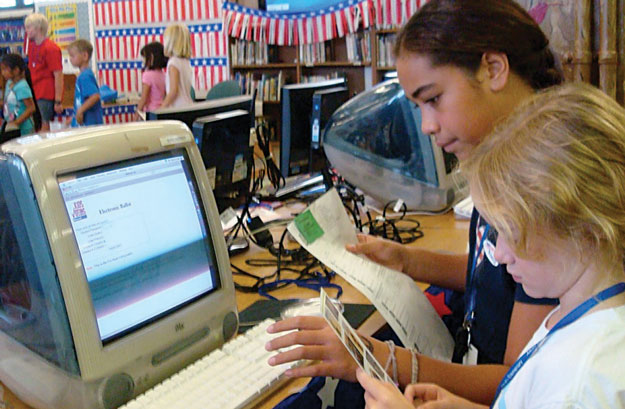
GM: What drives you to community service?
LC: I love the advice John Wooden shared with his UCLA basketball team: Be more concerned about your character than your reputation, because your character is what you really are, while your reputation is merely what others think you are.
I was in a profession where reputation — and ratings — ruled. At first, I joined boards and organizations because it was a good thing for the station to have my name on a letterhead. But over time, community service became more of a motivation than a motive.
As a person (not a media personality), I care about the prevention of child abuse, the need for a Big Sisters organization, foster kids and the civic education of our youth.
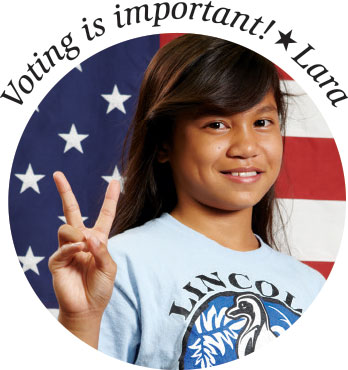 In 1987, when Rotary International raised the ‘testosterone curtain’ and allowed women to be inducted, I joined the Rotary Club of Honolulu. It was a year before leaving TV news to head to KSSK to work with Michael Perry and Larry Price every morning. With radio, I found an avenue for ‘service above self’— a way to make a difference with wonderful, dedicated businesses and community leaders.
In 1987, when Rotary International raised the ‘testosterone curtain’ and allowed women to be inducted, I joined the Rotary Club of Honolulu. It was a year before leaving TV news to head to KSSK to work with Michael Perry and Larry Price every morning. With radio, I found an avenue for ‘service above self’— a way to make a difference with wonderful, dedicated businesses and community leaders.
GM: Kids Voting Hawai‘i is one of your volunteer passions. Why is this organization very important to you?
LC: Kids Voting Hawai‘i, an affiliate of Kids Voting USA, grooms our youth to be informed voters and civically engaged, responsible citizens. It prepares students to get into the habit of voting, and inspires the adults in their families to vote.
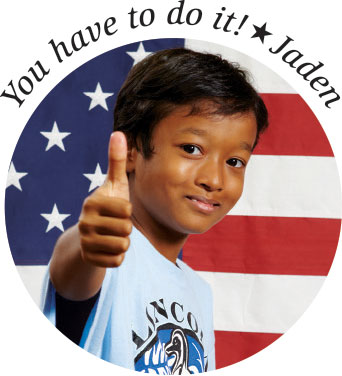 In 1995, when I was serving as the first woman President of the Rotary Club of Honolulu, Lyla Berg brought the Kids Voting idea to the club, and we ran with it. Rotarians statewide staffed the adult polling sites, where K-12 students went with their folks to cast their own paper ballots. By 2002, Kids Voting Hawai‘i shifted to cyberspace, and Hawai‘i students were the first in the nation to vote statewide by computer, thanks to the cutting-edge Internet technology of Commercial Data Systems.
In 1995, when I was serving as the first woman President of the Rotary Club of Honolulu, Lyla Berg brought the Kids Voting idea to the club, and we ran with it. Rotarians statewide staffed the adult polling sites, where K-12 students went with their folks to cast their own paper ballots. By 2002, Kids Voting Hawai‘i shifted to cyberspace, and Hawai‘i students were the first in the nation to vote statewide by computer, thanks to the cutting-edge Internet technology of Commercial Data Systems.
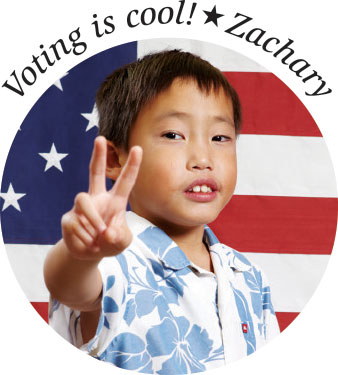 Kids Voting Hawai‘i continues to provide K-12 students with curriculum and classroom activities that address civic responsibility and compliment the Hawai‘i State Social Studies Standards. Our youth are inspired to explore the candidates and student issues, and engage their peers and parents in discussion. This hands-on experience in democracy is made possible by volunteers, including retired educators with Alpha Delta Kappa.
Kids Voting Hawai‘i continues to provide K-12 students with curriculum and classroom activities that address civic responsibility and compliment the Hawai‘i State Social Studies Standards. Our youth are inspired to explore the candidates and student issues, and engage their peers and parents in discussion. This hands-on experience in democracy is made possible by volunteers, including retired educators with Alpha Delta Kappa.
In the last Presidential General Election, nearly 120,000 students cast their ballots online. From October 22 through November 6, students will have the opportunity to go online and cast ballots anywhere there is an Internet connection.
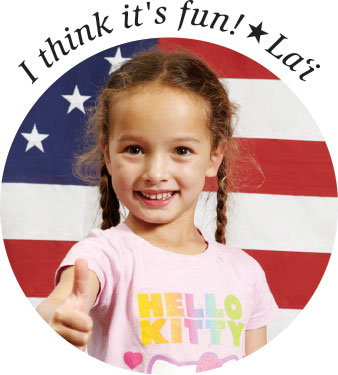 Everywhere I go, I invite folks my age, who are retired, talented and looking for meaningful ways to spend their time to find a need and fill it. Your experience is a gift. Your knowledge will rub off on younger generations. You will set an ideal example for your friends, who also may have some time on their hands that can be spent wisely.
Everywhere I go, I invite folks my age, who are retired, talented and looking for meaningful ways to spend their time to find a need and fill it. Your experience is a gift. Your knowledge will rub off on younger generations. You will set an ideal example for your friends, who also may have some time on their hands that can be spent wisely.
During my career, I never got closer to the movers and shakers than the length of my microphone cord. With Rotary membership, I have the opportunity to share weekly fellowship at meetings and roll up my sleeves to work side by side on community projects with wonderful friends who are making a difference in the community.
Over time, community service became more of a motivation than a motive. ~Linda Coble
Kids Voting Hawaii
Students statewide, K–
To vote from October 22 through November 6 (election night), students need:
- Student password
- Family’s precinct
- District number
This will gain students access to virtually the same ballots you adult voters will see at the polls. Ask your children or grandchildren if they are voting online. If they haven’t received a student password from their teacher, please encourage the school to provide the opportunity to their voice be heard and vote.
You Snooze, You Lose
The state Office of Elections and county clerks can register voters. You must re-register if you have changed your name or your address.
To register you must be 18, a citizen of the United State and a legal resident of Hawai‘i.
All election information, including polling places, can be found at www.hawaii.gov/elections.com.
How to Register to Vote?
• In Person: Visit the Office of the City or County Clerk where you reside to complete an Affidavit on Application for Voter Registration.
• By Mail: Mail the completed Affidavit on Application for Voter Registration to the Office of the City or County Clerk where you reside. Voter Registration Forms are available at your:
• Satellite City Hall
• Public libraries
• U.S. Post Offices
• Phone Directory
• State services agencies
• University of Hawai‘i System
• Office of Elections: www.hawaii.gov/elections
• The major political parties also sponsor voter registration online at www.gophawaii.com and www.oahudemocrats.org.
Questions?
Office of Elections: 808-453-8683
City & County of Honolulu: 808-768-3800
County of Hawai‘i: 808-961-8277
County of Maui: 808-270-7749
County of Kauai: 808-241-4800
Upcoming Important Events
Oct. 30: General election absentee applications must be received by the City/County Clerk where you reside no later than 4:30 p.m.
Nov. 6: General Election (Polling place hours: 7 a.m.– 6 p.m.)
Voter Turnouts
Hawai‘i general election turnout has been dramatically slipping. It has gone from a high in 1959 of 93.6 percent (or 78.1 percent a little more than 20 years ago in 1990) to a low 52.7 percent in 2006.


Leave a Reply